-
Global dialogue on dementia in low- and middle-income countries
Thursday 11 March 2021

Co-chaired by Paola Barbarino and Meera Pattabiraman, this global dialogue assessed what is to be done about ongoing and emerging challenges in developing regions of the world. Introductory presentations were delivered by Dr Paul Kiwanuka-Mukiibi (Uganda), Professor Francisco Lopera (Colombia), and Dr Vijayalakshmi Ravindranath (India).
-
Global dialogue on clinical trials
Tuesday 9 March 2021

Co-chaired by Dr Maria Carrillo and Professor Philip Scheltens, this global dialogue was a follow up to the first which convened in November 2020. Professor Jeffrey Cummings introduced thoughts on the challenges and progress in clinical trials, and brief reflections were given from Dr Mark Mintun on Eli Lilly's Donanemab trial as an exemplar of the evolving design of clinical trials.
-
Global dialogue on prevention
Tuesday 9 February 2021

Co-chaired by Professor Kaarin Anstey and Professor Philippe Amouyel, this global dialogue examined the evidence base for dementia prevention programmes and some of the current research happening in the field, prevention programmes and their practical implementation, as well as some of the lessons from other public health initiatives. Professor Carol Brayne, Dr Michele Cecchini and Dr Yoshiki Niimi presented their thinking ahead of an open discussion.
-
Global dialogue on care
Friday 5 February 2021

Co-chaired by Professor Brian Lawlor and Paul Hogan, this global dialogue covered progress made in the field of care and the challenges that remain, exploring models of care, the burden of caregivers, and art and music in dementia. Professor Felicity Barker, Professor Louise Robinson, Professor Mary Sano and Dr Samir Sinha presented their thinking ahead of an open discussion.
-
Global dialogue on biomarkers and treatments
Wednesday 18 November 2020

Co-chaired by Dr Maria Carrillo and Professor Philip Scheltens, this global dialogue covered two themes selected based on their importance in the field: early detection and biomarkers; and advances in treatment. Speakers included Professor Oskar Hansson, Dr Cath Mummery, Dr Eric Siemers and Professor Reisa Sperling.
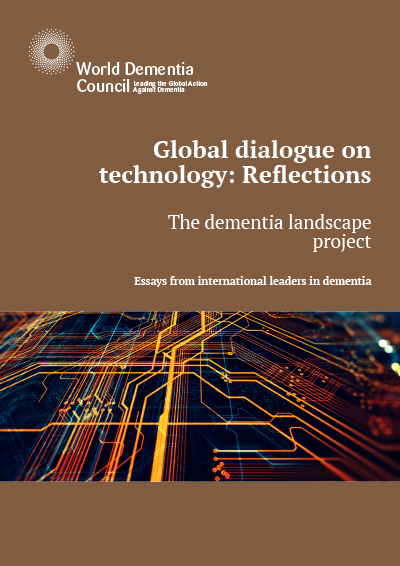
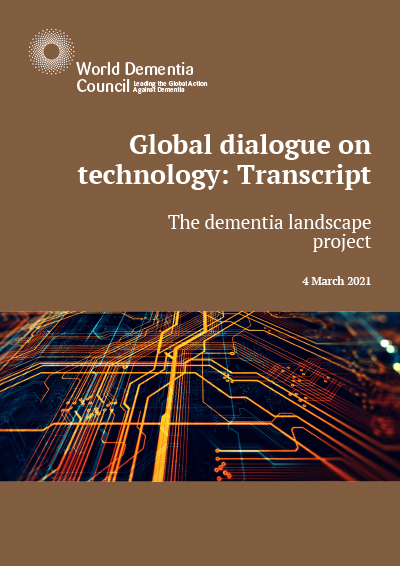
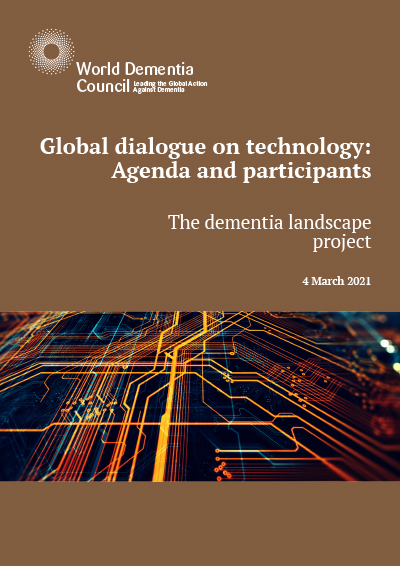
The technology global dialogue examined the emerging technological developments helping to reduce risk and improving participation for people living with dementia and their caregivers. It was co-chaired by Jeremy Hughes, vice chair of the World Dementia Council and Dr Vaibhav Narayan, vice president of digital health innovation at Johnson & Johnson.
Thursday 4 March 2021
Virtual meeting

Co-chairs
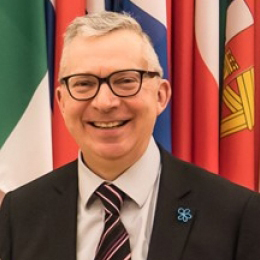 Jeremy Hughes
Jeremy Hughes
Jeremy Hughes works in health and social care and is former Chief Executive of the Alzheimer’s Society in the UK, where he led the charity in its five-year strategy “The New Deal on Dementia 2017-22”. He chaired the Dementia Technology Working Group for the UK Department of Health & Social Care, and he was awarded the CBE for services to older people in the Queen's Birthday Honours 2015.
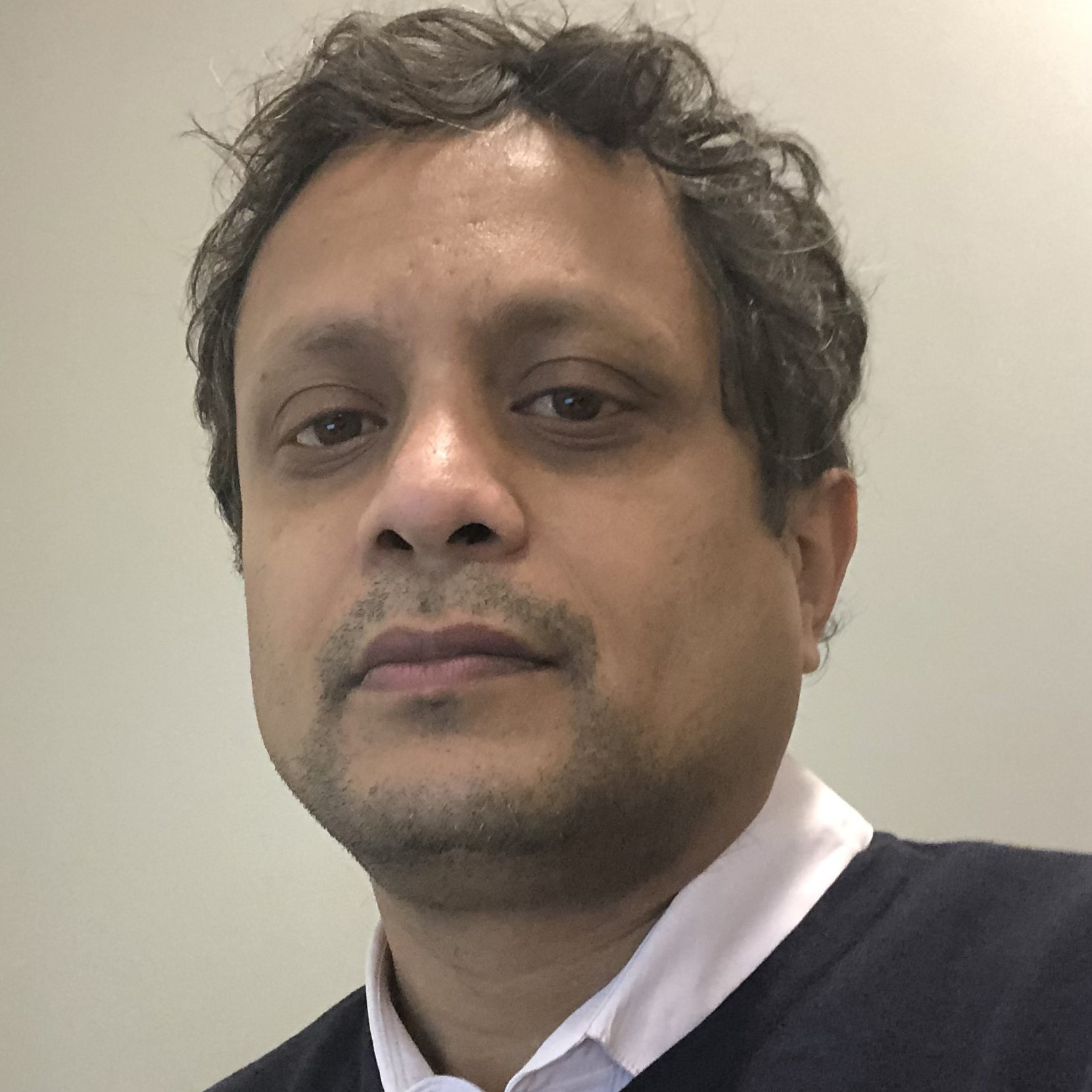 Dr Vaibhav Narayan
Dr Vaibhav Narayan
Vaibhav is currently Vice President of Digital Health Innovation, Science for Minds, at Johnson & Johnson (J&J). ‘Science for Minds’ is a newly launched initiative at J&J to address the significant unmet need surrounding neuropsychiatric and neurodegenerative disorders, with a focus on three key areas: 1) serious mental health disorders, especially those impacting adolescents, 2) dementia, and 3) holistic mental health care. Prior to this role, Vaibhav was Head of Data Science for the Neuroscience Therapeutic Area at Janssen, the pharmaceutical division of J&J. In these roles, Vaibhav has led internal programs, industry collaborations and public-private partnerships to discover and validate digital solutions for early detection, disease progression monitoring and relapse prediction in Alzheimer’s, Mood and Schizophrenia. An integral component of this digital and data driven strategy has been ‘disease interception’: i.e., deflecting trajectory of CNS diseases through remote monitoring and early detection and integrated pharmacological/non-pharmacological solutions that modify disease and develop resilience.

Presenters
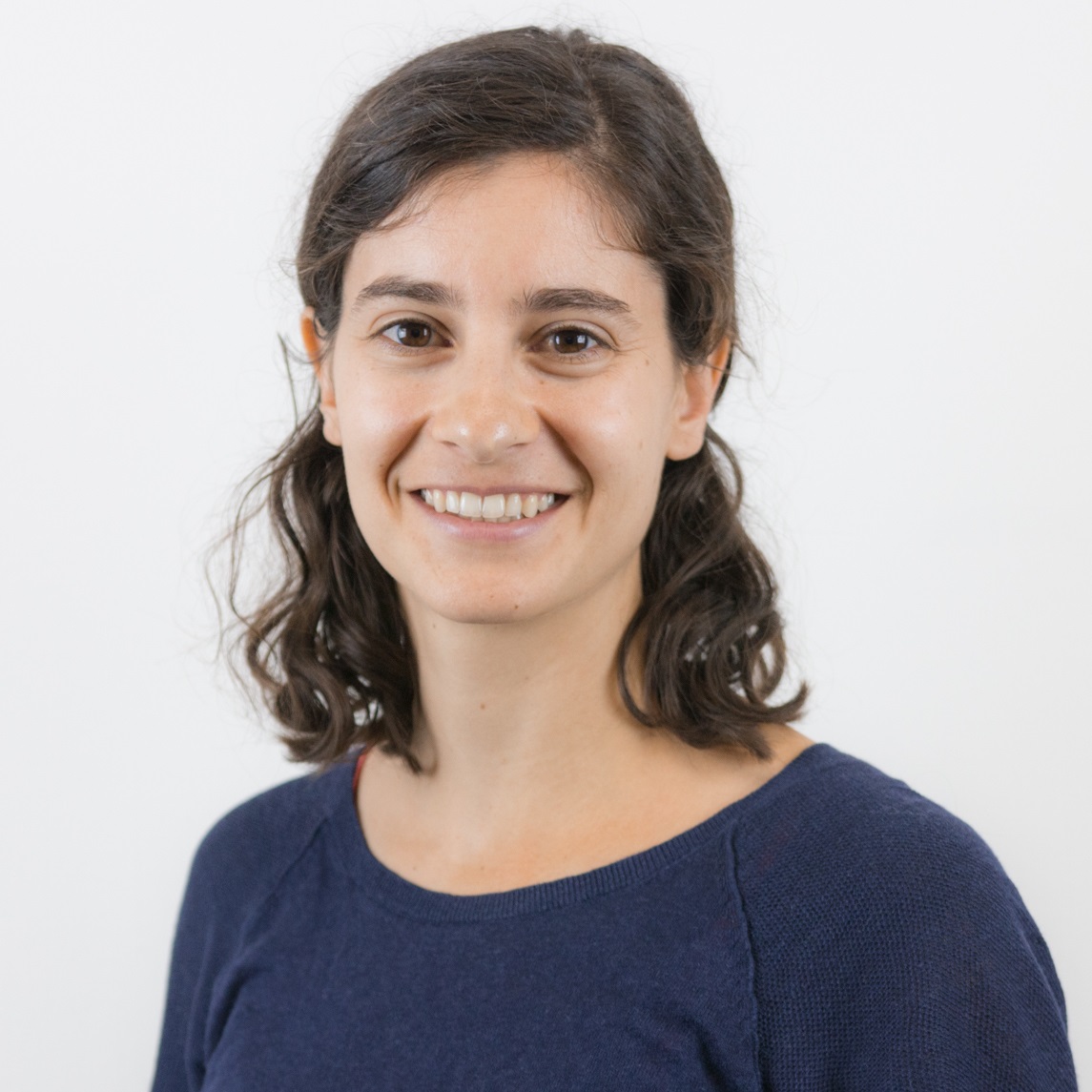 Dr Amanda Lazar
Dr Amanda Lazar
Amanda Lazar is an assistant professor in the College of Information Studies at the University of Maryland, College Park. She received her PhD from the University of Washington in the Department of Biomedical Informatics and Medical Education. Her research examines the design of technology for older adults – and in particular, older adults with dementia – to support social interaction and engagement in activities. Her work is supported by the National Science Foundation (NSF) and the National Institute on Disability, Independent Living, and Rehabilitation Research (NIDILRR).
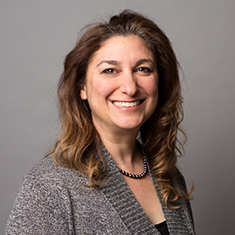 Dr Allison Sekuler
Dr Allison Sekuler
Dr Allison Sekuler (FSEP, FPS, FAPS) is the Sandra A. Rotman Chair in Cognitive Neuroscience and Vice-President Research at Baycrest Health Sciences, and Managing Director of the Rotman Research Institute and the Centre for Aging + Brain Health Innovation (supporting innovators in Ontario, across Canada, and globally). A graduate of Pomona College (BA, Mathematics and Psychology) and the University of California, Berkeley (PhD, Psychology), Dr Sekuler holds faculty positions in the Department of Psychology, Neuroscience & Behaviour at McMaster University and the Department of Psychology at the University of Toronto. Her research uses behavioural and neuroimaging approaches to understand how the brain processes visual information, with specific interests in face perception, motion processing, perceptual learning, neural plasticity, aging, and neurotechnology. Her research was the first to show conclusively that older brains “rewire” themselves to compensate for functional changes.
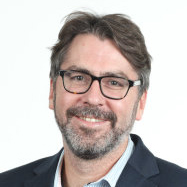 Professor David Sharp
Professor David Sharp
Professor David Sharp is a neurologist and Centre Director of UK DRI Care Research & Technology, focusing on using technology to enhance the lives of people living with dementia. He is also Scientific Director of the Imperial College Clinical Imaging Facility and Associate Director of the Imperial Centre for Injury Studies. His research programme aims to improve clinical outcomes after dementia and traumatic brain injury (TBI), focusing on common cognitive impairments in domains such as memory and attention. He uses cognitive neuroscience and advanced neuroimaging to investigate the effect of brain injury on brain network function and the effects of inflammation and neurodegeneration. His has explored how new treatments of cognitive impairment can be personalised and his current work focuses on harnessing neurotechnology development to improve the lives of those living with dementia and the effects of brain injury.

Other dialogues in the series
To inform the dementia landscape report, the Council has hosted global dialogues for international dementia leaders focusing on key themes of research, care and prevention that were identified at the London dementia summit in 2013, as well as on additional key themes and new policy priorities that we have agreed to highlight in the report, including data sharing and dementia registries, and the impact of dementia on low- and middle-income countries. See more below.